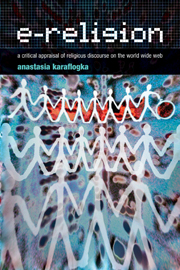3 - Web Epistemology
Summary
Introduction
Epistemology, as a branch of philosophy, examines the procedure by which information is processed, analysed and classified. Borrowing this idea from philosophy, the term is used here to underline the importance of “know-how” in the investigation of the Web as a socio-political, cultural, economic, educational, commercial and, in particular, religious arena.
Having identified the Web as the field and the parts of the field's ontology as theory, epistemology and methodology, this chapter addresses the question of knowledge, arguing that operational and structural aspects have significant repercussions on individuals and institutions participating in Web activity. Web epistemology is fundamental to this study because it provides the understanding of the field's properties, and this can determine and/or decisively influence the outcome of research. For example, any attempt to discover cyberreligious utterances is primarily determined by the researcher's knowledge of three factors: (1) the field's structural architecture and geography; (2) how to use existing search systems (directories and search engines); and (3) the implications of the way these systems operate and collaborate. Several scholars (Rogers 2000a; Shields 2000; Tate and Alexander 1999; Miller 2000) have identified the need to investigate the Web through a critical perspective, employing a pragmatic approach by focusing on the sociopolitical aspects of the Internet debate.
In this chapter, theoretical assumptions will be juxtaposed with empirical evidence from researched samples, in order to evaluate the system's performance and identify possible bias.
- Type
- Chapter
- Information
- E-ReligionA Critical Appraisal of Religious Discourse on the World Wide Web, pp. 56 - 85Publisher: Acumen PublishingPrint publication year: 2007

